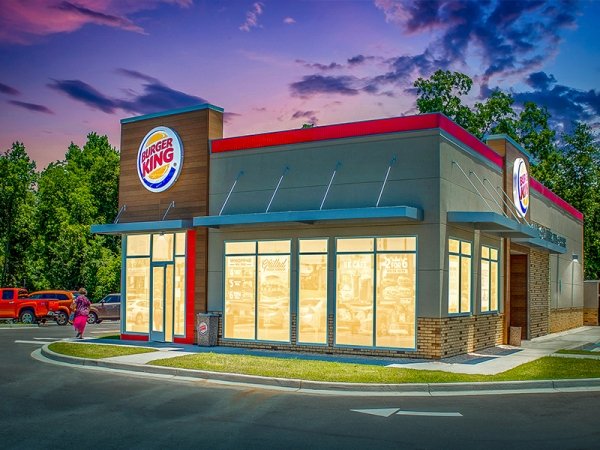Today we will review a real property example from a real potential buyer who wants to get into commercial real estate investing and prefers a NNN leased property. Are these investments worth it at a 5% Cap rate? Let’s find out.
Tell us a little bit about you.
I’m in the Dallas Fort Worth metroplex area in Texas, it’s a very rapidly growing area in the suburbs and since there aren’t many opportunities within the metroplex, they’re rare to come by. I’m a nurse practitioner, I work full time, and am looking to get into commercial real estate investing, specifically NNN leases, since it’s a little bit more passive opportunity and I don’t have to worry about, as they say, termites, toilets and taxes. So that helps me out in that sense. I’ve been doing a little bit of research and came across a potentially good opportunity in the Metroplex area, and has a very well regarded corporate tenant.
Unfortunately, the cap rate is between 4.5 to 5% and this will be my very first investment. I’m looking to certainly grow my portfolio, and this is a true NNN, where everything is taken care of. I feel like it’s great for me to learn from it, and not get too overwhelmed, just starting off. But my hesitancy with this is, since the return is a little bit lower, I’m concerned about what interest rate I would get from the banks, and if I’d be breaking even. I wanted to reach out to and see if you have any guidance, and what you would recommend for someone in my position who is a novice and strictly coming in with a foot in the door.
I can totally understand how you are torn because, from what I understand, you’re very busy with work and family, so there isn’t a ton of time to manage properties and deal with leases and all of that. But at the same time, the cap rate is pretty low. I’m going to ask you a few questions, and if you don’t know the answer we’ll just go ask the broker at some point and take it from there. What is the downpayment looking like right now?
It’ll be at least 20%, the price is a little over $900k, and the lease doesn’t expire for another 7-8 years. There are three, five year option renewals after that lease is up in about eight years.
Are these five year options?
Correct. Each option is five years.
So you have potentially another 15 years on top of the eight years, correct? Are there yearly rent increases, or is the rent increasing every five years?
The lease commencement was in August of 2009, in the years one through five there was no increase, but then after that, they’ve had a 6% increase. And then after that, it’s going to be 8% increase every time there’s a renewal.
About 1.5% a year, increase, give and take. When does that 8% kick in?
It doesn’t kick in until after this 7-8 years is up.
So you’re going to have that 5% cap for the next seven years. And then at that point, they can either leave or renew at an 8% increase. And this is the one that is a true NNN lease, you’re not taking care of anything.
Correct. It’s mailbox money, as they call it.
If there is any money left.
That’s a good point. Exactly.
One of the super critical things to take a look at in the lease is, I don’t know about Texas, but in California the taxes can be very low if they have owned the property for X number of years. And then once you purchase it at this new price, the taxes will go up significantly. I don’t know how it is in Texas, but I would definitely make sure that in the lease, if it’s the case for Texas, they are okay with any new tax increase, regardless. A lot of times these major tenants will negotiate a maximum tax increase of X percent. So that’s something that is your number one priority to check there.
For NNN leases, the tenants are paying for the taxes themselves, and a lot of the educated AAA rating tenants know how to negotiate their lease, they use their own lease and you negotiate from there. Let’s say someone owns a property in California for 20 years, they are only paying $10,000 in taxes every year, 20 years later they want to sell the property and the new tax base on the new price is going to be $50,000. We went from 10,000 to $50,000 while we still have that tenant there. Now, that tenant very likely has negotiated that their NNN responsibilities for the tax cannot go up by X percent per year. So you will not be able to quadruple his taxes and recover all of the additional $40,000 tax that you are going to be incurring. This differs from state to state, in some states it doesn’t matter what your purchase price is, the taxes are still the same. Other states like California, the taxes do go up based on the sales price. Tenants like that will likely negotiate a maximum increase upon a sale, and you might not be able to recoup that additional, in this example, $40,000 in taxes.
Let’s do some calculations, typically, a commercial loan is 30%, depending on which bank, let’s calculate a 30% down payment. Your loan amount will be $630,000 on a $900,000 purchase Price, typically, these loans are 20 years, let’s say at 4.25%. Your yearly payment is going to be with principal, almost $47,000. What are you getting on the lease?
$40,000
Well, that’s a 20 year loan, fully amortized. If you somehow you can find an interest only lender, you will be at $28,350/year.
that’s worthwhile currently before the next 8% is about 40,500, kind of the annual rent.

